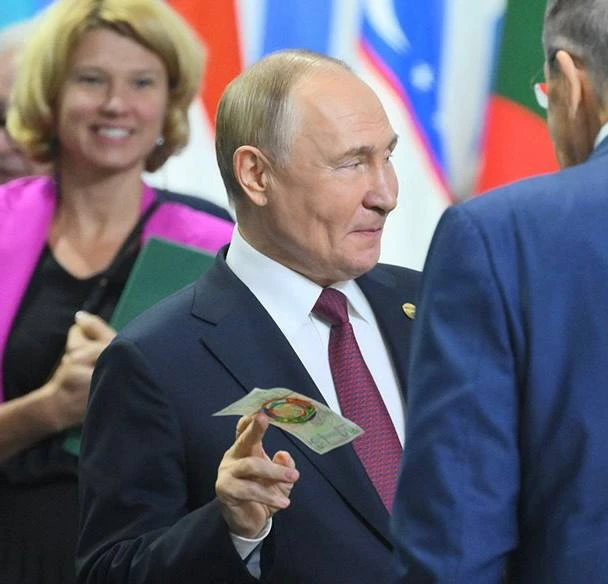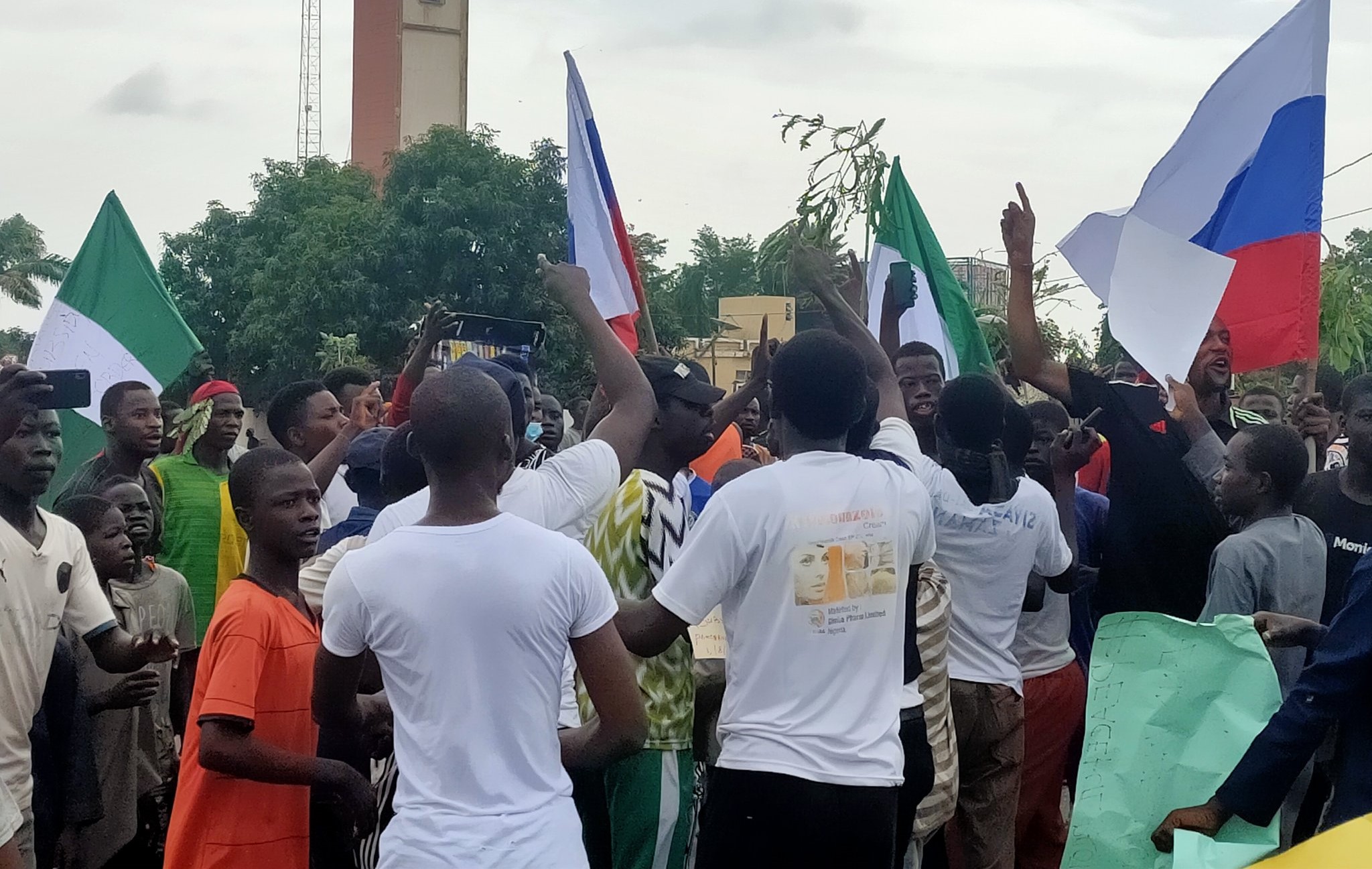BRICS unveils a symbolic banknote, sparking debate as Nigeria's name appears in Hausa. Explore the controversy, social reactions, and its potential impact on BRICS' vision for a new economic system.

The recent unveiling of a symbolic BRICS banknote has stirred significant debate in Nigeria. The note, presented during the BRICS summit in Kazan, featured the flags of member nations and has been viewed as a symbol of the bloc’s ambition to challenge the dominance of the US dollar.
However, one detail caught the attention of many Nigerians — the way the Federal Republic of Nigeria was written at the back of the note in Hausa as "Jamhuuriyar Tarayyar Najeriya."

Key Takeaways
- BRICS’ unveiling of a symbolic currency has raised concerns in Nigeria due to the use of "Najeriya" in Hausa, instead of the country's official name.
- Reactions on social media reflect a divide, with some seeing it as disrespectful to Nigeria’s constitutional values, while others view it as a recognition of the Hausa-speaking region.
- The move has also sparked conversations about BRICS' geopolitical intentions, particularly in relation to Africa's largest economy.
This has led to a flurry of reactions on social media, with notable figures like Reno Omokri questioning why Nigeria is being referred to by its Hausa name, rather than “Nigeria.”
Reactions on Social Media
Reno Omokri, a political commentator, took to X (formerly Twitter) to voice his concerns:
Omokri’s observation has sparked a wide range of responses. Some Nigerians expressed concerns about the implications of BRICS using Hausa, one of the major languages spoken in Nigeria, as a representation of the entire country.
Abraham Great, a social commentator, highlighted that this choice disregards Nigeria's constitutional directives:
"BRICS is disregarding or not paying attention to Nigeria's constitutional directives in section 55 of the Nigerian constitution as amended. This has a divisive tendency as it does not align with our federal character."
Abraham argued that the use of Hausa undermines the country's federal structure, which recognizes multiple languages, and that BRICS should have respected Nigeria’s sovereignty by using the official name "Nigeria."
Another user, Michael Tommy K, responded humorously, linking the move to Russia's possible influence over the northern regions of Nigeria:
"Because Russia is playing mind games with the Hausas, the same people raising Russian flags during the hunger protest...lol Nigeria is not joining BRICS."
While this comment brings a lighter tone to the debate, it hints at geopolitical concerns regarding Nigeria’s alignment with BRICS, especially since Nigeria has not formally applied to join the bloc.
Dr. Abdullahi Shehu, however, defended the use of Hausa, noting that it is widely spoken across Nigeria and Africa:
"When the northerners were calling unto Russia during the protest, some regions thought we were provoking the UK & Washington... little did they know Russia & BRICS were taking note."
This view implies that the use of Hausa on the BRICS note could signify recognition of Nigeria’s northern influence, especially in the context of recent pro-Russian sentiments expressed in some parts of the country during the last EndBadGovernance protest.


BRICS and the Quest for Global Financial Reform
The unveiling of the BRICS currency comes at a crucial time when the bloc is advocating for alternatives to the US dollar in cross-border transactions. Russian President Vladimir Putin has been vocal about the bloc's move toward a "fairer economic system," emphasizing that BRICS is not seeking to reject the dollar outright but rather preparing alternatives to mitigate potential sanctions and restrictions imposed by Western countries.
While the idea of a BRICS currency is still in its early stages, the symbolic banknote and discussions surrounding local currency settlements highlight the bloc's desire to shift away from Western financial dominance.
Nigeria’s Position and the Road Ahead
Nigeria's role in BRICS' future remains unclear. Although the country has not officially joined the bloc, the use of Hausa in representing Nigeria on the symbolic banknote raises questions about the geopolitical considerations behind BRICS’ outreach to Africa. Some commentators believe that BRICS’ actions could be seen as a bid to court Nigeria’s northern region, which has demonstrated support for Russia during the last protest.
As debates continue, one thing is certain: the BRICS currency discussion has ignited a broader conversation about Nigeria’s identity and its place in the global economic order. While some Nigerians view the use of Hausa as a divisive move, others see it as an acknowledgment of the cultural and geopolitical diversity that defines the nation.
The implications of this decision will likely continue to unfold, especially as BRICS pushes forward with its goal of establishing a new financial system that challenges the status quo of dollar hegemony.

